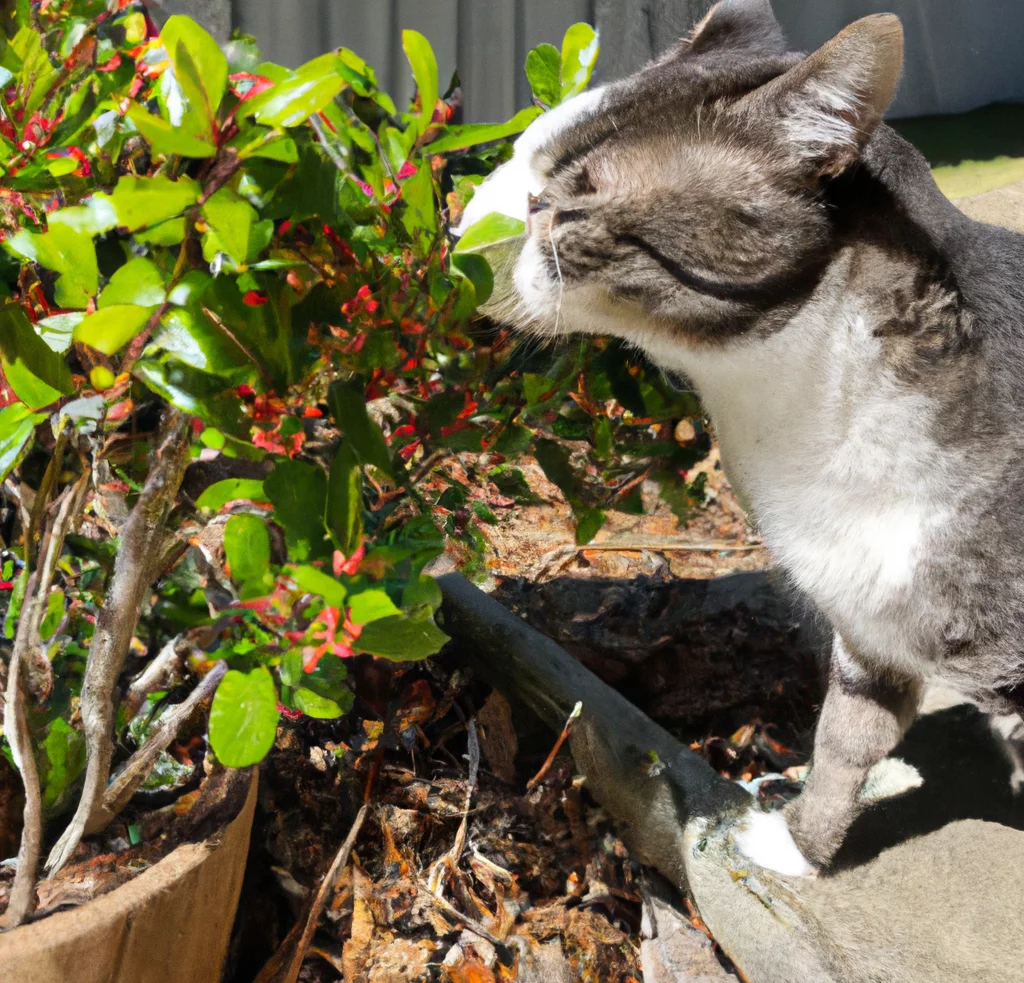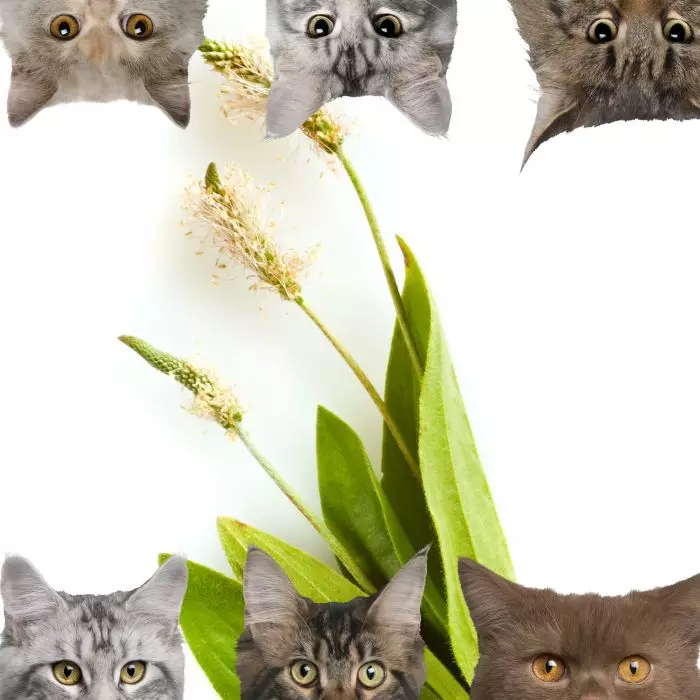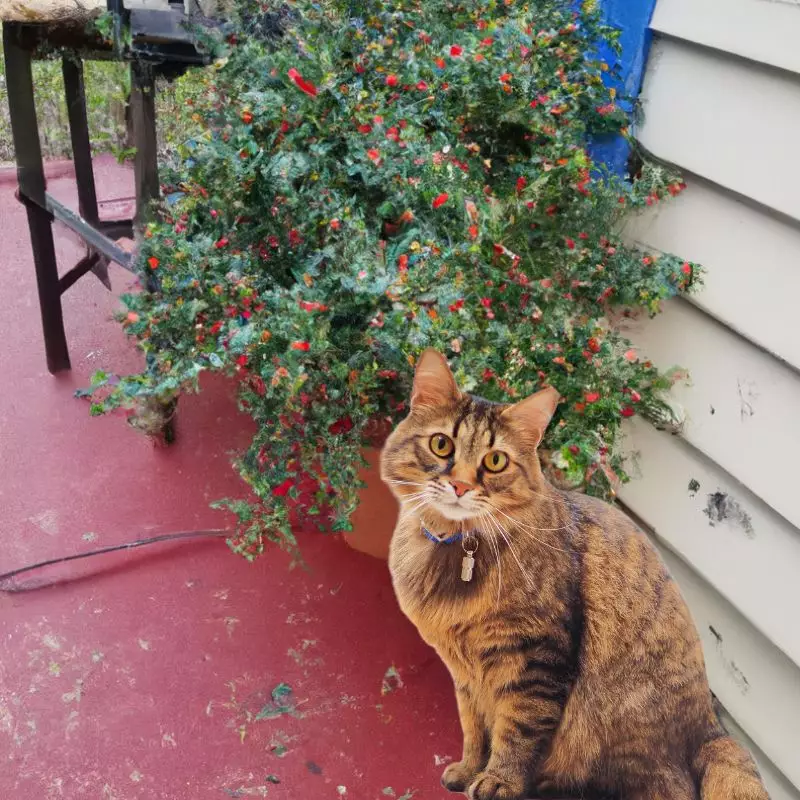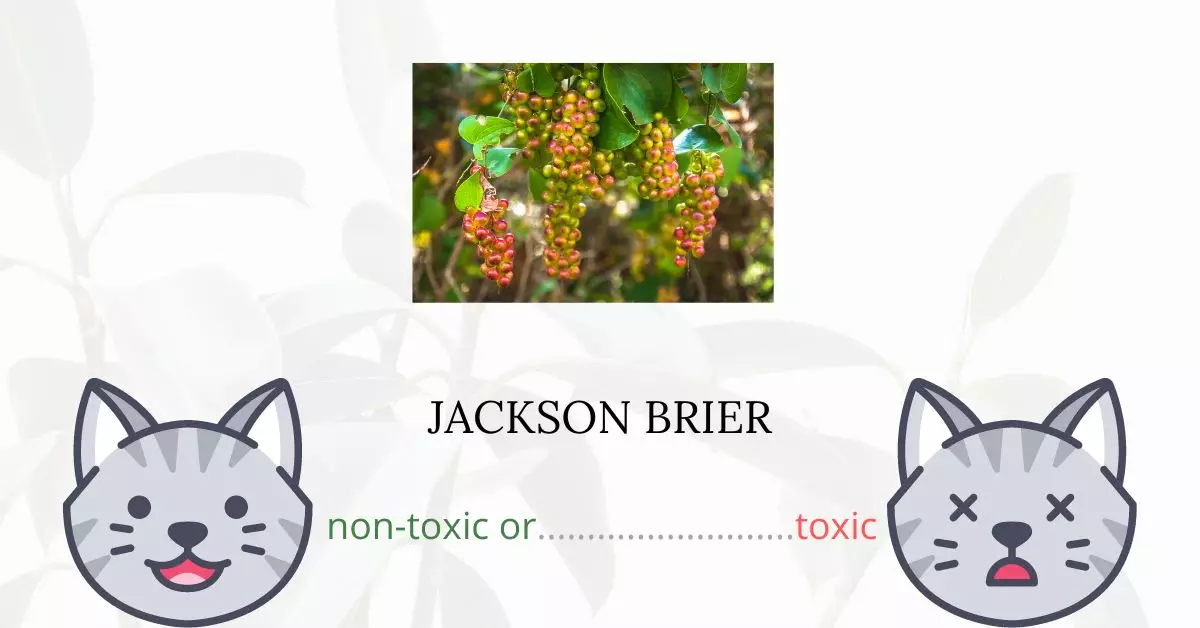No, Jackson Brier is not toxic for cats. This member of the Smilaceae family is recognized by the American Society for the Prevention of Cruelty to Animals (ASPCA) as a non-toxic plant for felines.
This article has been crafted in collaboration with a team of experienced DVMs (doctors of veterinary medicine) to ensure accuracy and relevancy. Their expertise, combined with thorough research from high-authority sources such as ASPCA and PetMD, allows us to provide up-to-date and precise information on the potential risks associated with various plants, focusing on Jackson Brier in this context, and their impact on cats.
Can Cats Eat Jackson Brier?

Your cat won’t get hurt if it eats some of this plant in moderation. However, because cats are obligate carnivores, the majority of their diets should consist of meat. They need a specific type of protein that can only be obtained from animal meat, and many other crucial elements must also come from an animal source.
These animals are unable to digest plant material and vegetation properly. For the majority of cats, eating too much of this kind of food can cause digestive problems and stomach distress. This could involve diarrhea, vomiting, and nausea.
What is Jackson Brier?

Both traditional Chinese medicine and Hindu Ayurvedic medicine refer to Jackson Brier (Smilax lanceolata) as Tufuling.
The root is said to have anti-inflammatory and anti-cancer effects. It might be antiviral and might boost the immune system, according to laboratory research. The effects have only been studied in rats, therefore it is unknown if they would also apply to people.
Jackson Brier grows in trees and large bushes in its natural habitats in Asia, clinging to twigs and branches with its tendrils.
Since each flower can be either male or female, the species cannot reproduce on its own; therefore, if a seed is to be produced, both male and female plants must be grown. It mostly spreads via rhizomes.
Keeping Cats Away From Jackson Brier

Before you plant, employ physical barriers like the chicken wire on top of the soil or mulch all around the planting site. Chicken wire and bristly materials terrify cats. You may make holes in the chicken wire big enough for your plants to be installed by using wire cutters.
You can mulch with stone, eggshells, holly cuttings, or pine cones with sharp edges. Cats dislike these harsh materials and prefer to dig and poop in loose dirt. To prevent cats from perching or relaxing in other areas, you may install a plastic carpet runner with the nub side facing up.
Plants to Avoid For Your Cats
If you are a cat owner and unsure if the plants growing in your yard are harmful to your cats, check out this list of toxic plants for cats. You can also check our list of non-toxic plants for cats.





